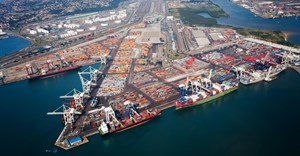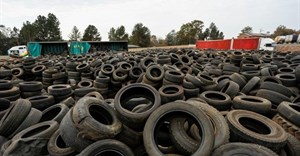Trending
Megatrends pose defence, security challenges - PwC report

Each of the key trends and their potential impact is analysed in a new report from PwC entitled Five Megatrends and their implications for Global Defense and Security. This impact poses a need for more agility and accountability from governments and greater collaboration across the whole of society in order to combat risk, warn PwC global defence and security leaders.
More powerful national economies
The shift in global economic power will create more powerful national economies in different regions with greater resources to protect, and more resources to invest in defence and security. Extensive and complex supply chains will become increasingly vulnerable to disruption from cyber criminals engaged in industrial espionage, theft or terror-based disruptive activities.
Demographic changes mean that as populations in the West age, the demand for social services and healthcare will put severe pressure on budget priorities that could compete with or even crowd out defense and security expenditure.
In contrast, the growth in the youth populations in emerging markets could create radicalisation and civil unrest and a greater likelihood for disruptive transnational movements to take hold in these societies. This could create both internal and external security issues that will require greater investment and innovative strategies to combat.
Growing megacities
Accelerating urbanisation could mean that the aggregate power of the growing megacities will rival that of the national governments due to the sheer size of their constituencies. The explosion in urbanisation will present significant challenges for law enforcement, intelligence and internal security agencies, as well as traditional defence organisations.
Providing adequate police and security for these areas will be costly and will require a higher level of interagency information-sharing and collaboration.
The rise of technology offers exciting new technological advances that promote even greater automation, analytics and communications. But it also creates new vulnerabilities that will challenge law enforcement, security, and defence organisations like never before.
The combination of the internet, mobile devices, data analytics, drones, artificial intelligence, and cloud computing will provide defence and security organisations step-function increases in capabilities to address and respond to threats that will be using the same, commercially available tools to do harm. The challenge for defence and security organisations will be to develop and adapt these tools at the speed of business – not the traditional speed of government.
Tensions over natural resources
Meanwhile, climate change and resource scarcity will increase tensions between nations over access to natural resources. As the global population continues to grow, these disputes will become more acute and more critical to national survival, particularly when it comes to very basic resources such as food, water, and energy sources.
Jacques Eybers, Aerospace, Defence and Security Leader for PwC South Africa, says: “The impact of the megatrends are not limited to commercial enterprises and commercial interactions. Rather, they will have a profound and disruptive effect on the defence and security environments in which these organisations, their customers, and countries must operate.
“This will require more agile and accountable approaches from government institutions and greater collaboration across the whole of society to mitigate risk. For some countries, being able to anticipate and adapt to the megatrends will be a matter of national survival.”

















![[BizTrends 2016] Agribusiness CEOs recognise impact of global megatrends](https://biz-file.com/c/1601/327369-300x156.jpg?2)